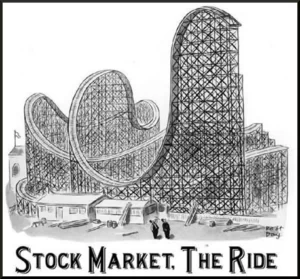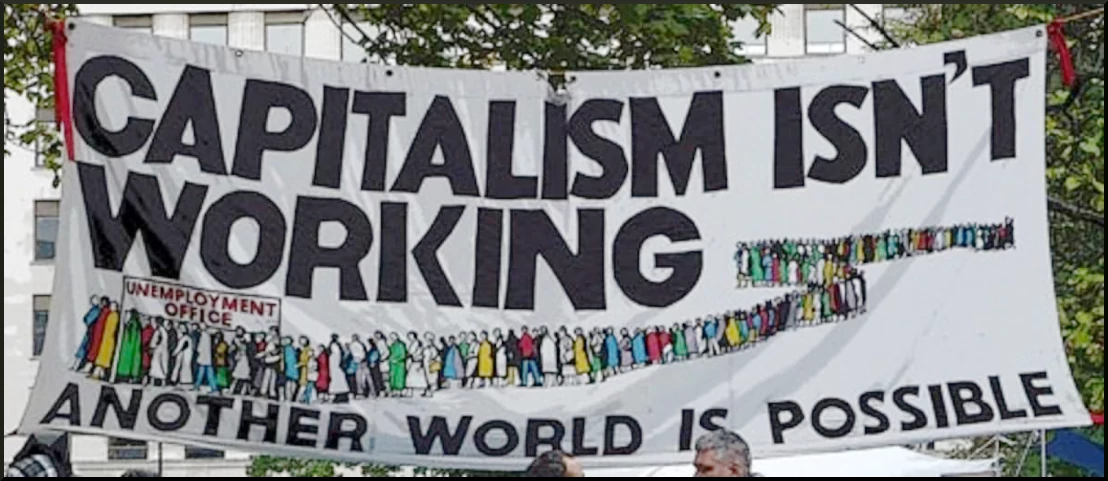Workers World Editorial, March 13, 2023
It is often the case that, when the capitalist system is on the verge of a crisis, the period leading up to it is marked by buoyant explosions of optimism. On Oct. 25, 1929, President Herbert Hoover proclaimed that the U.S. economy was “on a sound and prosperous basis.” Four days later the stock market crashed. (billofrightsinstitute.org)
 It’s not much different almost a century later. Typically before a recession, the working class (along with uneasy wealth-holders) is reassured that the economy is “robust” or at least “safe.”
It’s not much different almost a century later. Typically before a recession, the working class (along with uneasy wealth-holders) is reassured that the economy is “robust” or at least “safe.”
Hence the collapse of the Silicon Valley Bank — the largest bank collapse since the 2008 implosion of Washington Mutual and the second-largest bank collapse in U.S. history — is being presented as an isolated event.
On the morning leading up to SVB’s collapse March 10, the news media was focused on the latest employment statistics. “Employers added 311,000 jobs in February, another stronger-than-expected showing,” The New York Times crowed. President Joe Biden stated, “Today’s jobs numbers are clear; our economy is moving in the right direction.”
Later that Friday a California financial regulator, referring to SVB, declared: “The bank is now insolvent.” On Sunday’s “Face the Nation,” U.S. Treasury Secretary Janet Yellen tried to soothe the public’s nerves: “What I do want to do is emphasize that the American banking system is really safe and well-capitalized; it’s resilient.” (cbsnews.com)
Yellen stated that SVB’s depositors would be made whole by the Federal Deposit Insurance Corporation, beyond the $250,000 limit that the FDIC guarantees. So the money of larger depositors is safe.
What is not safe are the jobs of workers in the technology sector, where there have been massive layoffs in the past few months. SVB, the 14th largest U.S. bank, was the lender of choice for tech companies — not only in California’s Silicon Valley but around the world. Now start-ups are scrambling to make payroll, and more layoffs are predicted.
No normal downturn
The “experts” continue to allay worries about a “contagion,” blaming SVB’s demise on a “panic” caused by a few overly worried venture capitalists, who urged investors to pull out. But in addition to SVB, Silvergate Bank closed two days before and Signature Bank two days after. All three were heavily involved in the crypto-currency market. Last year the multibillion-dollar crypto company FTX went belly-up.
Wild speculation, such as that which fueled the crypto boom, may lead to fantastic growth of monetary wealth. But because it does not involve the buying of workers’ labor power, there is no creation of surplus value, which is the foundation of the capitalist mode of production. That is why the crypto bubble — an example of what Marx called fictitious capital — is like the real estate bubble leading up to the 2008 financial crash. It likewise will expand at a galloping pace until it bursts.
The writing is on the wall.
As Workers World Party’s First Secretary Larry Holmes wrote in October 2022,
“This is no normal economic downturn. However long and drawn out this economic crisis is and whatever events push it forward, it’s the development that many Marxists (as well as bankers and billionaires who are willing to utter words of truth) consider to be the biggest global capitalist economic crisis in history. The capitalist crisis that is under way is unique in that it is symptomatic of a dying system entering its end-stage.”
The historic role of the working class is to bring capitalism, with all the destructive crises it engenders, to an end — and replace it with socialism, a system based on human needs, not profit.
